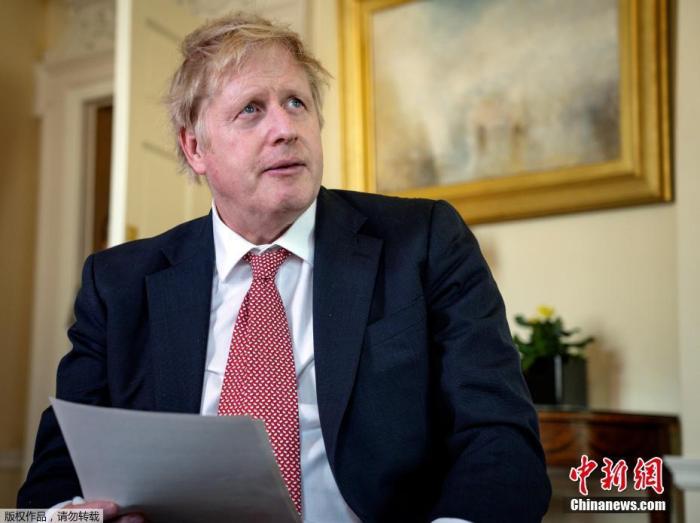Chinanews, December 14th, a comprehensive report, December 13 was originally the deadline for trade negotiations between the United Kingdom and the European Union, but since the agreement has not yet been reached, the two sides agreed to enter the "overtime game" that day.
However, British Prime Minister Johnson stated that he hopes to reach a post-Brexit trade agreement with the EU, but the current failure is still the "most likely" outcome.
At present, Britain has begun to prepare for a "no agreement" Brexit, including hoarding a large amount of supplies and medicines, and dispatching four Royal Navy patrol boats to stand by at any time to patrol British waters.
On January 29, local time, the European Parliament approved the "Brexit" agreement.
The picture shows the parliamentarians toasting farewell after the voting.
China News Agency issued photos for EU
Brexit enters "overtime"
Johnson is pessimistic about reaching an agreement
Johnson and European Commission President Von der Lein agreed on the 13th to continue Brexit trade negotiations.
The two sides issued a joint statement stating, "This morning we made a constructive call to discuss the main unresolved issues... We believe that at this stage we have a responsibility to redouble our efforts. Therefore, we instruct our negotiators to continue negotiations To see if an agreement can be reached at this final stage."
The President of the European Commission von der Lein said on the same day that she and Johnson agreed that continuing negotiations is a responsible approach.
However, British media pointed out that Johnson is pessimistic about the prospects of the agreement and believes that no agreement is more likely.
Johnson told the media that day: "We still have major differences on some key issues... The UK cannot make concessions on the bottom line."
Data map: British Prime Minister Johnson.
UK opens "stocking mode"
Four patrol boats on standby
British media pointed out that the main crux of the deadlock in the UK-EU negotiations lies in the extent to which the UK should abide by EU economic rules in the future, including whether it will continue to open waters to EU fishing vessels and whether it has the right to establish its own products and subsidy standards.
The British Ministry of Defense confirmed on the 12th that four Royal Navy patrol boats are ready to deal with the "illegal fishing threat" after a no-deal Brexit.
A British government spokesperson said that the authorities conducted on-site exercises, including the transportation of fresh produce and fish across the border, and the emergency dispatch of warships to deal with illegal fishing vessels in "sovereign waters."
On the other hand, British supermarkets have begun a "hoarding model" to cope with the material shortage that may be caused by a "hard Brexit".
According to reports, the road near the Port of Dover in the United Kingdom was recently blocked by trucks.
The transport company said that the traffic jam was the result of Britain's stockpile.
It is reported that the ministers have pre-approved hundreds of emergency measures to deal with possible catastrophic consequences.
Emergency measures include ensuring that 3,000 trucks transport food and medicine to the UK every week; the British government has listed shepherds, fishermen, and car manufacturers as the most affected by EU tariffs, or will introduce a subsidy program of 8-10 billion pounds.
What is the attitude of the EU?
A source involved in the coordinated action revealed that the 27 EU member states are happy to see the UK and EU extend the trade talks and promised that if an agreement is reached, they will take "all necessary steps" to make it effective as soon as possible.
Michelle, President of the European Council, said, "We must do everything we can to make the agreement possible. We must support a good agreement."
According to reports, the UK will leave the EU single market in more than 10 days.
If a trade agreement cannot be reached during the transition period, EU-UK trade will return to the WTO framework from January 1, 2021.
Tariffs and non-tariff barriers may cause the prices of many commodities to rise and bring chaos to supply chains in Europe and beyond.

